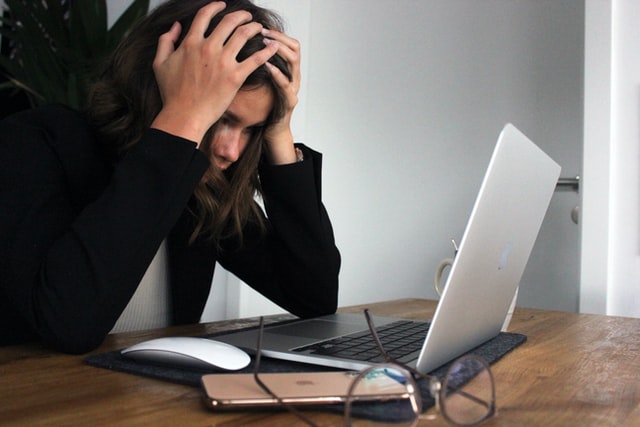If you’re one of the 1 in 5 Americans who experience extreme stress, you could also be one of the millions who experience depression or anxiety disorders.
Stress and depression appear to be a Catch-22: people who are stressed often engage in unhealthy behaviors, such as not getting enough sleep, drinking excessive alcohol and eating food that’s low in nutritional value. These behaviors can trigger depression, which perpetuates the unhealthy behaviors.
Here’s why you should care about stress management and what you can do to manage your stress starting today.
The Link Between Stress and Depression
Stress and stress-related ailments are so widespread in the U.S. that they contribute to $300 billion in costs related to health care treatments and lost productivity. They have been proved to lead to more disease and more sickness, such as increasing the risk of heart disease and worsening diabetes. They also change the way your body releases hormones that help your brain and body function normally, and these changes could lead to depression.
The link between depression and stress requires everyone to take a look at how they manage stress. Stress is the brain’s response to any demand, either in the short term such as traffic on a work commute, or on a long-term basis such as a serious illness, being a caretaker for a sick loved one, or a job loss.
Stress can be motivating or even life-saving if you’re in a threatening situation and can initiate your responses so you react quickly. But if you’re experiencing long-term stress and not managing it, then you’re not turning off your body’s response to it. This ongoing stress response can be a burden on your body, and you’re more likely to end up with other disorders such as depression or anxiety.
If you’re stressed day in and day out, you could be experiencing symptoms of depression such as:
- Decreased productivity
- Decreased energy
- Bad moods
- Sleep problems
- Trouble with daily routine
The Depression Test
All people experience bad moods, grief or sadness. Depression is a much more serious condition than sadness, and it can be diagnosed in a variety of ways. Online assessments, such as this one from Psychology Today, can help you get started in understanding if you have depression.
Your primary care physician can also help with diagnosing and beginning treatment for depression. Often, your PCP knows your entire health history and can make recommendations for lifestyle modifications or prescribe medications such as antidepressants. If the treatment recommended by your PCP isn’t effective, he or she can refer you to a psychiatrist.
Anxiety versus Depression
Anxiety presents in several ways and differs from the symptoms of depression such as loss of energy and bad moods. Anxiety is characterized by feelings of panic and anxiousness in situations that do not cause those feelings in most people.
Depression comes in many different forms and affects everyone differently. For example, women are twice as likely to have depression as men and may experience postpartum depression following a pregnancy.
Anxiety and depression differ in symptoms, diagnosis and treatment, yet are common conditions that frequently occur at the same time. One study found that of people diagnosed with major depression, 85 percent were also diagnosed with a general anxiety disorder.
Stress Management: Where to Start
First and foremost, you must recognize that you’re experiencing chronic stress and possibly an anxiety disorder or depression. Recognizing the impact of stress is the first step toward treatment and ongoing management. Here are some ways to manage chronic stress, which may be the crux of another illness:
- Prioritize self-care and find a supportive relationship that will hold you accountable. Relationships with friends and family provide an excellent antidote to stress; cultivate those relationships and make time to talk to your friends about your stress and how you’re managing it. Millions of people experience stress, so it’s likely that someone you’re close to is in a similar situation. If you don’t have a family member or friend to talk to, consider joining a support group. The type of support you need may depend on the cause of your stress; it could be job- or money-related or related to parenting or marriage.
- Try one new stress management technique this week. Yoga, mindfulness meditation and breathing exercises can all be done for free at home.
- Get active. Exercise has been proved to reduce stress as well as symptoms of anxiety and depression. It’s also been shown to help curb cravings for bad habits such as drinking too much or eating poorly, both of which can be triggered by stress.
- Contact your doctor to discuss treatment options if you think you have developed depression.
- Consider taking a lifestyle management class that will help you learn how to manage stress and make other life improvements such as better nutrition or increased exercise.
Sources:
http://www.mayoclinic.org/healthy-lifestyle/stress-management/expert-answers/stress/faq-20058233
http://www.webmd.com/depression/features/stress-depression
http://www.nimh.nih.gov/health/statistics/prevalence/major-depression-among-adults.shtml
http://www.helpguide.org/articles/depression/depression-signs-and-symptoms.htm
http://www.webmd.com/depression/finding-doctor-therapist
http://www.ncbi.nlm.nih.gov/pmc/articles/PMC2292431/
http://psychcentral.com/lib/depression-versus-anxiety/
https://www.nimh.nih.gov/health/publications/stress/index.shtml/index.shtml


